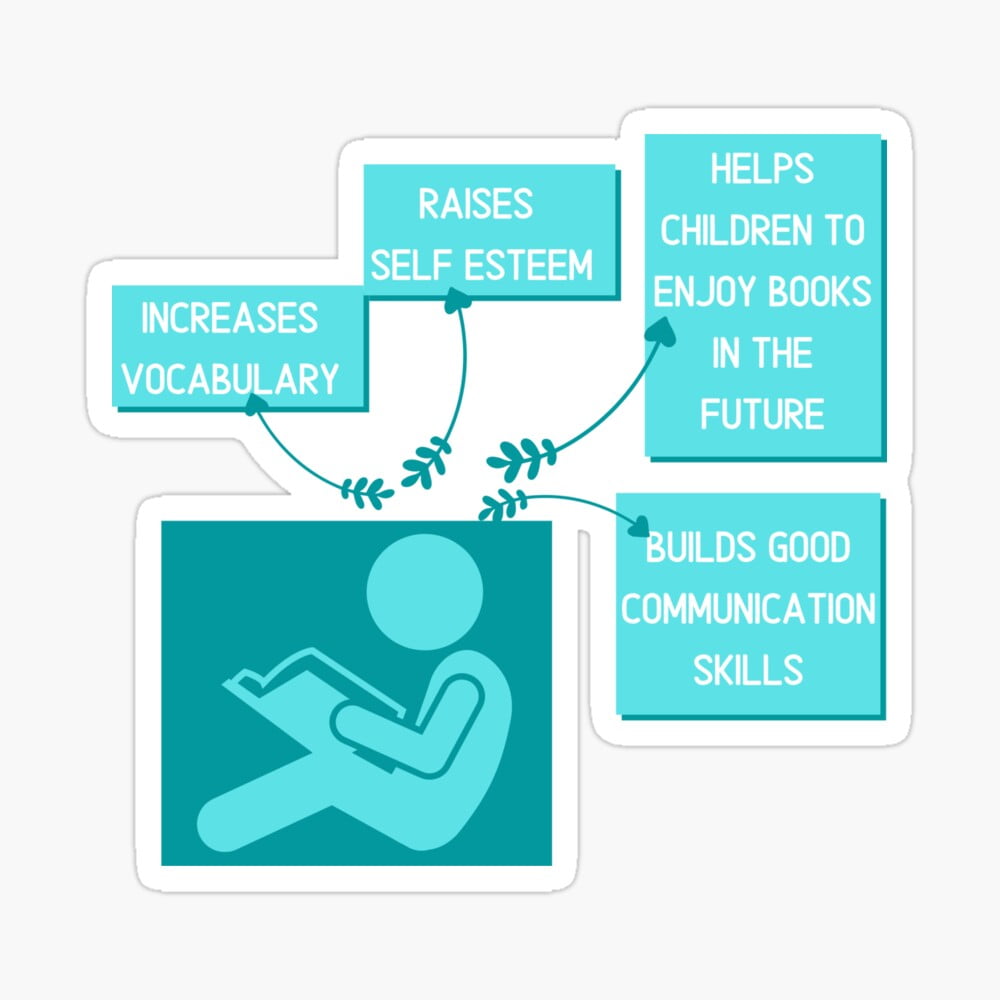Books are everywhere. All over larger cities and colleges, you will find bookstores and libraries of all sizes. All of them are filled with books, which is the most important thing of all. People who love reading books are grateful for the many places they can find them. People who don’t love books may not understand why readers obsess over reading them. Their obsession is not without reason. It’s a common refrain: Read every day.

Reading may seem like a simple pastime, but it can be beneficial to your mind and body. These are just a few of the reasons why reading can be so important. You might find yourself rethinking your opinion about reading after learning the benefits. Is reading so simple and enjoyable that it can be so beneficial in your life? Yes, it can. You can reap the many benefits of reading, including sharpening your imagination and writing skills. Reading has many benefits, so it should be a daily habit to at least read a few pages every day.
Importance of Reading Books
It also keeps our minds active. Books can hold all sorts of information, stories, and emotions unlike any other in the world.

What if words, paragraphs, and fiction can be so good for your health and well-being? You can do it, and reading is an everlasting form of information and entertainment.
Reading was, in fact, the only form of entertainment for many years. This may be why reading has been so prominent for so long. Reading has survived through the years and, thankfully, its benefits have also survived. Let’s now discuss why reading is so important.
Reading has many benefits, including improving your mental health and physical health. It’s easy to see why books and reading are such popular forms of entertainment. Books have been around for a long time and have never lost their value. Here are some of the amazing benefits of reading a book and hence getting into a new world of imagination.
What are the benefits of reading books?
Murasaki Shikibu was a Japanese woman who wrote “The Tale of Genji” during the 11th century. This book, which consisted of 54 chapters and revolved around courtly seduction in court, is considered to be the first-ever written novel.
People still read novels in ancient times. Some devices today allow readers to read stories on their smartphones rather than actual books. This makes reading easy and convenient. Scientific research has shown that reading books can provide many benefits to humans, including pleasure, information, and pleasure.
Meanwhile, your mental and physical health can be improved by reading books. Reading books has many benefits that last a lifetime.
We know that you are interested in learning as much as you can about your hobby to improve your life. Below you will find detailed explanations of each benefit, broken down into the appropriate categories.
Reading books builds vocabulary
Research shows that children who read books regularly at an early age have a large vocabulary over the long term. A child who has a good vocabulary can improve their academic success, passing various set tests and eventually getting college admission. They also have many job possibilities.
Employers are always looking for people who have soft skills like communicating clearly. Reading books can help you learn new words and improve your soft skills.
Reading books improve your communication skills
It provides you with a wealth of information and stimulates your brain to explore new topics and stories. A good imagination and a quality vocabulary will give you an advantage when it comes to creating simple sentences and complex sentences that are appropriate for different situations, such as interviews or simple conversations.
It is easy for readers to communicate their feelings and thoughts.
Reading books help in relieving your stress
A great story can distract you from your daily chores and problems, no matter what format it is. A well-written novel will transport you to another world, while an engaging article will keep your attention on the present. The tension in your body will be automatically released, and you will feel relaxed.

The University of Sussex conducted a 2009 study that found that reading for just six minutes reduced stress levels by 68%. This is amazing! You’ll find yourself in places that a great book won’t let you go.
Reading books can also help to relieve your depression
Scruton was a British philosopher who stated that the idea of being able to escape reality is not a fantasy. People who are depressed feel isolated and disconnected from others. These feelings can be reduced by reading articles and books.
Reading books can allow you to escape your world and enjoy the stories of other characters.
Experts and doctors highly recommend these self-help books.
Reading books has Health benefits
Every reader will tell you that reading a book can stimulate your brain’s many functions. This has been proven by a variety of researchers and continues to be supported by the many health benefits that reading can bring.
Reading improves memory and empathy. You’ll feel happier and more optimistic in your life. Research shows that reading can reduce depression and stress levels, as well as decrease the risk of developing Alzheimer’s disease later in your life.
Reading has also been shown to lower blood pressure and heart rate.
Slows age-related cognitive decline
The National Institute on Aging strongly recommends keeping your mind stimulated through reading books, magazines, and articles as you get older.
While research is still inconclusive, it is clear that seniors who read books can maintain their cognitive function and prevent the development of memory diseases such as Alzheimer’s.
In 2013, Rush University Medical Centre conducted a study that found people who engage in mental stimulation were less likely to develop brain lesions and plaque buildups related to dementia.
Advantages of Reading Fiction Books
Many readers confess to enjoying reading fiction. You can easily transform into a pirate, an emperor, or a fairy 50 years old by reading a story. Well-written magic words are the best way to reap all the benefits of reading.
Reading fiction helps you develop critical thinking, social cognitive skills, and theory of mind. Emotional intelligence is a key component of understanding others. Fictional stories provide a creative environment that allows readers to improve their self-esteem.

Reading fiction books does not mean you have to give up on them because of adulthood.
It makes it easier to empathize
Empathy is the ability to relate to others and understand their feelings. Empathy is something that can be learned and practiced every day.
It’s easy to see the thoughts and feelings of the characters and to learn how to live like them.
Your reactions to events in a story will vary greatly from the reactions of the characters. This allows the reader to feel the emotions of the other person.
Reading a book can help you develop empathy because your brain learns from others how it feels to be there. You will be able to apply your learned knowledge in real-life situations, which is a new superpower.
Increases imagination
You must be able to imagine the contents of a fiction book to read it. Your imagination can be creative and can have many impacts on your everyday life.

Most people associate imagination with art and children. You could draw or compose music.
Reading a book stimulates the brain by allowing you to picture the whole storyline. All things outside of our present or past are part of imagination.
Memory improvement
Reading fiction helps improve memory. Fictional stories can help people recall long-term goals. You will need to recall the plot and characters as you read the chapters.
Training your brain to store long-term memories can help improve memory function. Research has shown that reading can slow down your memory loss in your senior years.
Your brain works just like any other muscle. Regular exercise is necessary to keep your brain healthy. Reading novels and other books can improve your memory. It stimulates different parts of the brain, allowing it to make new connections and enhancing your ability to remember.
Visualizing information helps improve memory.
Another study was to analyze brain scans taken from subjects who had been reading a novel. The brain scans showed more activity in different parts of the brain as the storyline got more intense.
The brain activity of the participants was monitored for several more days after the novel was finished. The results showed that memory and brain activity had improved.
All-inclusive
Reading fiction helps you be more open-minded, inclusive, tolerant, and flexible. You will be more open to understanding and relating to the stories of others and improve your attitude towards stigmatized people and communities.

Reading can help you to understand different aspects of life and reduce negative attitudes towards other people. It is all about discrimination can make students more open-minded, more decisive, and less likely to discriminate against others children. This is also true for adults.
Makes you happier
It is a great way to relax and have fun with fictional books. Reading can help you reduce stress and keep you away from negativity. Reading has many scientifically proven benefits. Books will make you happy.
Reading a book can lift your spirits and make you feel great. An analysis of 1,500 adults in the UK found that 76% said reading improves their lives and makes them feel great.
The brain releases endorphins, serotonin, and dopamine which are happy hormones. Reading magazines, articles, and books makes the reader feel valued, happy and pleased.
Makes you more tolerant
Fiction stories cover a variety of topics, and you can learn a lot about tolerance from them.
Reading relaxes the mind and body, as I mentioned earlier. You will be able to accept others better if you are less stressed.
You can also learn from other people’s stories and use that knowledge to help you understand their struggles and make your own.
Increases analytical skills
Reading fiction books can help you increase your analytical skills in many ways. Reading fiction books can help improve your ability to organize and sort information.
You indirectly learn how to organize, manage, conceptualize and visualize information while following the plot of the story. The ability to analyze data and research to fill in book gaps allows the reader to be empirically able to analyze at all times. It’s not only beneficial to your brain to read fictional books but it’s also a lot of fun.
Advantages of Reading Non-fiction books
While reading fiction is fun and useful, it’s just as enjoyable to read non-fiction. Non-fiction can provide facts that are more concrete than the fictional worlds you’d explore in fiction books. This can be a great way to help you in your personal growth.
Teaches you facts
Non-fiction is more concrete than fiction, and it teaches you facts instead of letting your imagination roam in imaginative worlds. Non-fiction, regardless of whether it’s history or a book on a topic that interests you, provides accurate information and allows you to learn practical skills that you can use later in your life.
Your thought process is expanded

Non-fiction can activate the part of your brain that is responsible for analytical thinking. This is one of the benefits of reading it. This improves your ability to think clearly and allows you to understand more real-life concepts. It also makes it easier to form your opinions. You’ll be much more comfortable expressing your beliefs when you have better communication skills.
This tool will help you better structure information
Non-fiction is written differently from fiction because it is based on facts. Understanding headings, subheadings, and diagrams are key to storing data in your brain in the same way.
It will make your life easier by improving the way you organize and compartmentalize information.
What are the Advantages of Reading Novels?
Reading novels can improve your social skills, and help shape your brain. Children and adults who read novels do better on tests such as empathy tests. They also have a greater ability to connect with others.
In 2010, a study revealed that children who read stories and novels are more likely to have the ability to think like other people.
A 2009 study by Oatley also found that novels improve people’s social skills. This includes agreeableness and openness to different experiences, emotional stability, and stability, as well as emotional awareness and stability.
Longer life
An adult study was conducted to determine the life expectancy of readers and non-readers. Adults who read books regularly lived longer than those who didn’t, with a difference in two years.
It was also revealed that those who read more per week lived longer than those who weren’t avid readers. It was also found that magazines and other media are not as effective as novels.
Focus on the important things
Reading novels is a good way to improve your literacy. Reading books can improve the ability of an adult or child to concentrate.

Your mind is engaged in a healthy activity while reading. Your brain is engaged in learning and remembering details while following the storyline. This is a great exercise for your brain.
You can also train your brain to be more focused by engaging with the story’s plot.
Healthy entertainment
One of the most well-known advantages of reading novels is its ability to provide wholesome entertainment. You can read all the books that you choose and enjoy different stories and information.
Reading books is a great way to discover new opportunities. You will live a high-quality life by learning how to reduce stress and focus on different situations.
There are many unhealthy entertainment options available today, mainly via electronic media such as movies and games that can be accessed easily from your smartphone, computer, or television. Blue light from electronic devices can have negative effects on our eyes. Focusing on books will decrease the amount of blue light you may receive from using social media platforms and other devices.
Advantages of reading books
Reading before going to bed is an old habit. Some people have trouble reading before bed, while others find it easy. Others prefer to leave behind their childhood stories.
Is reading before bed possible? Let’s take a closer look at what reading before bed can do for you.
Better sleep
You can open a book, get completely absorbed in it, and you’ll have an unaltered state of mind.
Your body will prepare for sleep if you let your mind wander to literary escape. People who read before they go to bed are more likely to get a good night’s sleep.
Less stress
You lose yourself in a book and your attention is only on the plot. This means that your heart rate, blood pressure, and muscle tension will drop.

However, it is important to choose carefully the type of book that you read. While horror, mystery, and thriller books may be entertaining, the plots and suspense levels could keep you up for longer than you would like. You should choose uplifting and calming books that have positive effects on your mood.
This could help prevent you from falling asleep
Insomnia can be caused by a variety of factors, such as increased stress levels or other medical conditions. It makes it difficult, if not impossible, to fall asleep.
It is possible to reduce stress and anxiety by reading a book before going to bed.
Reading can increase levels of serotonin as well as melatonin which may help insomnia patients fall asleep faster.
Bottom line
The many benefits of reading are undeniable. A book is one of the most powerful tools you have in the universe. It allows you to discover the many possibilities and inspires you.
We strongly recommend that you use the Basmo app to improve your reading habits.

It is compatible with all mobile devices. This allows you to keep track of books you have read or are interested in reading. It also helps you track your reading sessions (pages read, time spent reading), and allows you to set reading goals and reminders so that you don’t miss any of your reading sessions.
Benefits-of-ReadingConclusion
Books can be both entertaining, and a great way to improve your health. Books can be used as tools for a healthy lifestyle. People who don’t read are unable to appreciate the joy of reading. However, those who read daily know how important it is to get lost in a good book. Your preference in books can vary from romance to nonfiction. People will often read magazines articles and textbooks if they like reading them. No matter what you read, reading can bring many benefits to your mind and body.
FAQ
Q1. Can reading increase IQ?
Ans. Reading children’s books and learning vocabulary can lead to higher scores on reading tests as well as higher scores on intelligence tests. Plus, stronger early reading skills may mean higher intelligence later in life.
Q2. How long should I read a day?
Ans. Answered originally: How many hours of reading should a person spend each day? If you’re new to reading, it is recommended that you read at most one hour per day. It is recommended that you read at least 30 to 60 minutes per day, books, or other essential material.
Q3. Does reading books improve memory?
Ans. Reading increases memory. It is good for the brain, according to studies. Reading is an effective form of memory care and slows down cognitive decline that occurs with aging. It’s also a great way to pass time.
Q4. What are the 5 benefits of reading books?
Ans. Research shows regular reading:
- Brain connectivity is improved
- Increases your vocabulary and comprehension
- Empathy allows you to empathize and relate with others.
- Sleep readiness aids
- reduce stress.
- Lowers heart rate and blood pressure.
- fights depression symptoms.
Share with your friends





